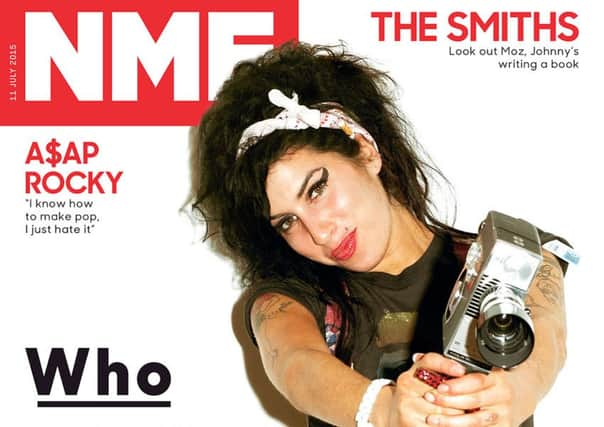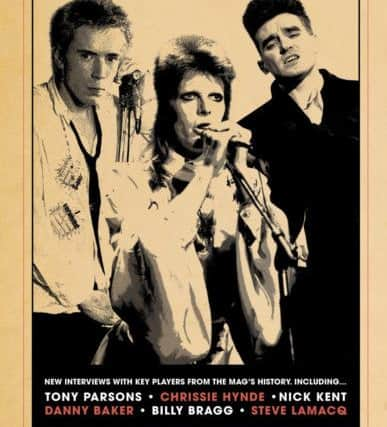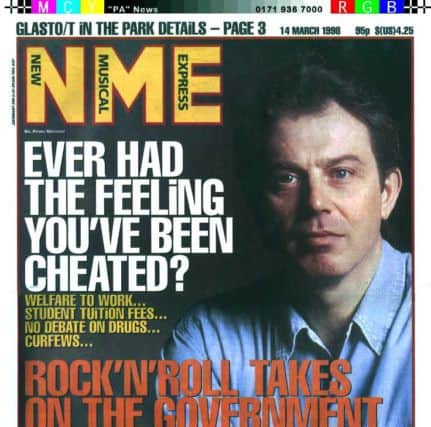The day the music died: NME goes free after 63 years (with vintage video)


It was in 1952 that the New Musical Express sold its first edition. In two months’ time it will sell its last, before moving to free distribution - a victim of the worldwide migration from print publication to websites.
Its publisher, Time Inc, says the move will boost circulation 20-fold to around 300,000 copies, which will be handed out at stations, shops and colleges.
Advertisement
Hide AdAdvertisement
Hide AdBut to generations of music fans, it signals the end of an era, an age when the purchase of a music magazine marked a rite of passage from adolescence to adulthood.
Veteran NME writer Danny Baker lamented the move on Twitter, posting a picture of himself at its office in 1979 and saying: “And so ... the NME is a free sheet now. Why not? The games up & the fire’s gone out.”
Former colleague Tony Parsons added: “Anything that keeps this great old title alive is a good thing - I wish them well. A tough market but I know the NME will survive.”
NME’s paid-for circulation of 15,000 is a far cry from its 1960s heyday when it sold in six figures and shared the market with fondly-remembered rivals like Sounds and Melody Maker.
Advertisement
Hide AdAdvertisement
Hide AdThen, it was an essential part of the pop landscape, promoting the likes of The Beatles and the Rolling Stones and putting them in the line-ups of its annual Poll Winners Concert, a forerunner to today’s Brit Awards.
It was an earlier pop idol, the crooner Al Martino, who was the sensation of the moment when publishers Maurice Kinn and Percy Dickins launched the NME from the ashes of the Accordion Times and Musical Express, in London’s Tin Pan Alley. There wasn’t a pop chart in Britain so Dickins created one, copying the model that had been gaining popularity in the USA. Martino’s version of Here In My Heart was the first number one, that November.
The next few years saw the emergence of skiffle and then rock and roll, with home-grown stars like Tommy Steele, Cliff Richard and Lonnie Donegan at the vanguard. In the paper’s 1960 Readers’ Poll, twangy guitarist Duane Eddy was named Number One World Musical Personality, ahead of Elvis Presley.
The new popularity of beat groups represented a golden era for the NME and the British music industry generally. But the paper was slow to bridge the generation gap which followed, as showbusiness-inspired pop gave way to “serious rock” that a new audience could call its own.
Advertisement
Hide AdAdvertisement
Hide AdNME lost ground to its rival Melody Maker, and in the early Seventies was threatened with closure by its then owner, the publishing group IPC. But a new editor, Alan Smith, and writers like Julie Burchill, Charles Shaar Murray and Nick Kent helped it regain credibility and profitability.


Today’s editor, Mike Williams, promised the move to free distribution would herald a rebirth.
He said: “Every media brand is on a journey into a digital future. That doesn’t mean leaving print behind, but it does mean that print has to change, so I’m incredibly excited by the role it will now play as part of the new NME.
“The future is an exciting place, and NME just kicked the door down.”
A MUSIC BILL TO DIE FOR...


Advertisement
Hide AdAdvertisement
Hide AdIN the 1960s, the NME poll winners’ parties boasted an incredible line-up of talent. In 1964 alone, The Beatles shared the bill with the Rolling Stones, Cliff Richard and The Shadows, Roy Orbison and a recorded message from Elvis Presley.
The event was attended by 10,000 fans at Wembley’s Empire Pool and televised - but not until two weeks later - by ABC Weekend Television.
The Beatles made their first NME appearance in 1963 but failed to win any awards as voting had taken place at the end of the previous year, before their breakthrough hits She Loves You and I Wanna Hold Your Hand.
The band’s last appearance for the paper was in 1966, an occasion that also marked their final UK concert.